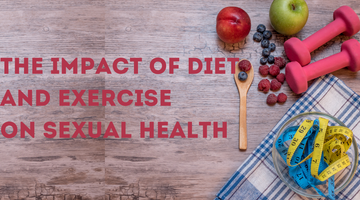
"The Right to the Highest Attainable Standard of Health" implies a clear set of legal obligations on states to ensure appropriate conditions for all people to enjoy health without discrimination.
The right to health is one of a set of internationally recognized human rights standards that is inseparable from the other rights. This means that achieving the right to health is both central to and dependent on achieving the rights to food, shelter, work, education, information, and participation.
- According to the World Health Organization's Constitution (1946), "the highest attainable standard of health is a fundamental right of every human being."
- Recognizing health as a human right imposes a legal obligation on states to provide timely, acceptable, and affordable health care.
- Various international human rights mechanisms review a state's obligation to support the right to health, including the allocation of "maximum available resources" to gradually realize this goal.
- A rights-based approach to health requires that health policies and programs prioritize the needs of those who are the most disadvantaged first in order to achieve greater equity, a principle echoed by the 2030 Agenda for Sustainable Development and Universal Health Coverage.
- The right to health must be exercised without regard to race, age, ethnicity, or any other factor. Non-discrimination and equality necessitate states taking action to correct any discriminatory law, practice, or policy.
- Meaningful participation is another characteristic of rights-based approaches. Participation entails ensuring that national stakeholders, including non-state actors such as non-governmental organizations, are involved meaningfully in all phases of programming, including assessment, analysis, planning, implementation, monitoring, and evaluation.
As with other rights, the right to health includes both liberties and entitlements:
- The right to control one's health and body for example, sexual and reproductive rights, and to be free from interference are examples of liberties for example, free from torture and non-consensual medical treatment and experimentation.
- Entitlements include the right to a healthcare system that provides everyone with an equal opportunity to achieve the best possible level of health.
- Almost 70 years after they were incorporated into the World Health Organization's Constitution, these words are more powerful and relevant than ever.
- The right to health has been central to WHO's identity and mandate since its inception. It is central to my top priority: universal health care.
- Everyone has the right to health, which means that they should have access to the health services they require, when and where they require them, without financial hardship.
- No one should become ill and die simply because they are poor or lack access to necessary health care.
- Other fundamental human rights, such as access to safe drinking water and sanitation, nutritious foods, adequate housing, education, and safe working conditions, clearly influence good health.
- Everyone has the right to control their own health and body, including access to sexual and reproductive information and services that are free of violence and discrimination.
- Everyone has the right to privacy as well as to be treated with dignity and respect. Nobody should be subjected to medical experimentation, medical examinations, or treatment without their informed consent.
That is why WHO promotes the concept of person-centered care; it embodies human rights in the practice of care.
People's physical and mental health suffers when they are marginalized or face stigma or discrimination. Discrimination in health care is unacceptable and a significant impediment to development.
People's human rights are respected when they are given the opportunity to be active participants in their own care rather than passive recipients, and health systems become more efficient.
We have a long way to go before everyone has access to these basic human rights, regardless of who they are, where they live, or how much money they have.
The central tenet of the 2030 Agenda for Sustainable Development is that no one should be left behind.
All countries should respect and protect human rights in health, including in their laws, policies, and programs. We must all work together to combat inequalities and discriminatory practices so that everyone, regardless of age, gender, race, religion, health status, disability, sexual orientation, gender identity, or migration status, can enjoy the benefits of good health.
As humans, our health and the health of those we care about are daily concerns. We regard our health as our most basic and essential asset, regardless of our age, gender, socioeconomic status, or ethnic background. Ill health, on the other hand, can prevent us from attending school or work, from attending to our family responsibilities, or from fully participating in our community's activities. By the same token, we are willing to make many sacrifices if it means that we and our families will live longer and healthier lives. In short, when we talk about well-being, we frequently refer to health.
The right to health is an essential component of our human rights and our understanding of a dignified life. To give it its full name, the right to enjoy the highest attainable standard of physical and mental health is not new. Internationally, it was first articulated in the 1946 Constitution of the World Health Organization (WHO), whose preamble defines health as "a state of complete physical, mental and social well-being and not merely the absence of disease or infirmity". According to the preamble, "enjoying the highest attainable standard of health is one of the fundamental rights of every human being, regardless of race, religion, political belief, economic or social condition.
The right to an adequate standard of living was also mentioned in the 1948 Universal Declaration of Human Rights. In 1966, the International Covenant on Economic, Social, and Cultural Rights reaffirmed the right to health as a human right.
Other international human rights treaties have since recognized or referred to the right to health or aspects of it, such as the right to medical care. Every state recognizes the right to health and has ratified at least one international human rights treaty recognizing it. Furthermore, through international declarations, domestic legislation and policies, and international conferences, states have committed to protecting this right.
In recent years, greater emphasis has been placed on the right to the highest attainable standard of health, for example, by human rights treaty monitoring bodies, WHO, and the Commission on Human Rights now replaced by the Human Rights Council, which established the mandate of Special Rapporteur on the right of everyone to the highest attainable standard of physical and mental health in 2002. These initiatives have contributed to a better understanding of the nature of the right to health and how it can be realized.





I stumbled across a comment while scouring the internet. I am suffering from erectile dysfunction, which was the same situation i found on the post , i ordered mine and same with me today am cured ,if you also need his assistance , You meant go through his website: https://bubaherbalmiraclem.wixsite.com/website Or reach via mail: buba.herbalmiraclemedicine@gmail.com or his Facebook Page ;https://www.facebook.com/profile.php?id=61559577240930 . AND THANK ME LATER